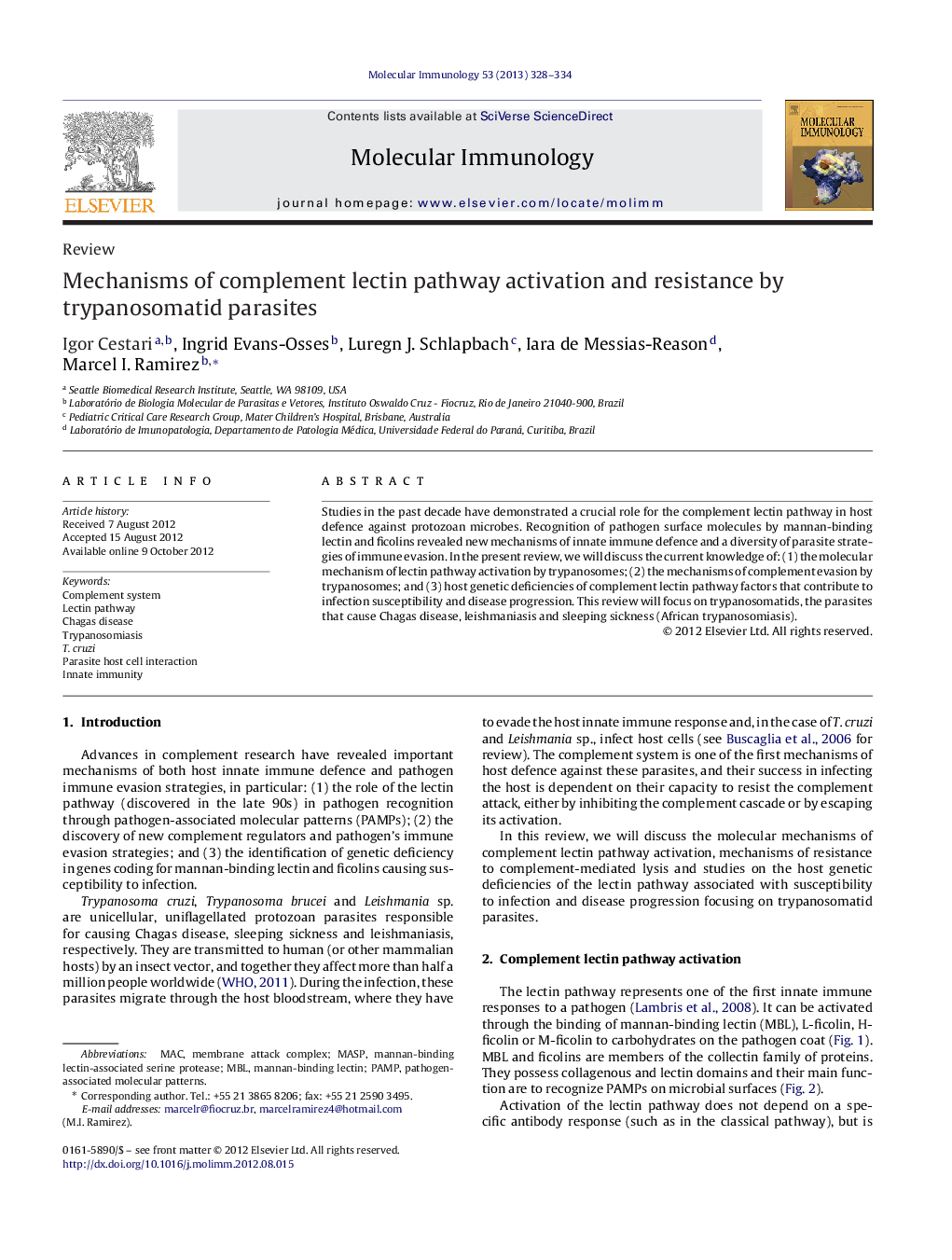| Article ID | Journal | Published Year | Pages | File Type |
|---|---|---|---|---|
| 5916996 | Molecular Immunology | 2013 | 7 Pages |
Studies in the past decade have demonstrated a crucial role for the complement lectin pathway in host defence against protozoan microbes. Recognition of pathogen surface molecules by mannan-binding lectin and ficolins revealed new mechanisms of innate immune defence and a diversity of parasite strategies of immune evasion. In the present review, we will discuss the current knowledge of: (1) the molecular mechanism of lectin pathway activation by trypanosomes; (2) the mechanisms of complement evasion by trypanosomes; and (3) host genetic deficiencies of complement lectin pathway factors that contribute to infection susceptibility and disease progression. This review will focus on trypanosomatids, the parasites that cause Chagas disease, leishmaniasis and sleeping sickness (African trypanosomiasis).
⺠The complement lectin pathway is rapidly activated by trypanosomes and Leishmania. ⺠The expression of stage-specific complement receptors confers resistance to lysis. ⺠The main mechanisms involves C3 convertase inhibition and shedding of C3b and MAC. ⺠Host genetic deficiency of the lectin pathway correlates to infection susceptibility. ⺠Disease progression is also aggravated by host deficiency of the lectin pathway.
